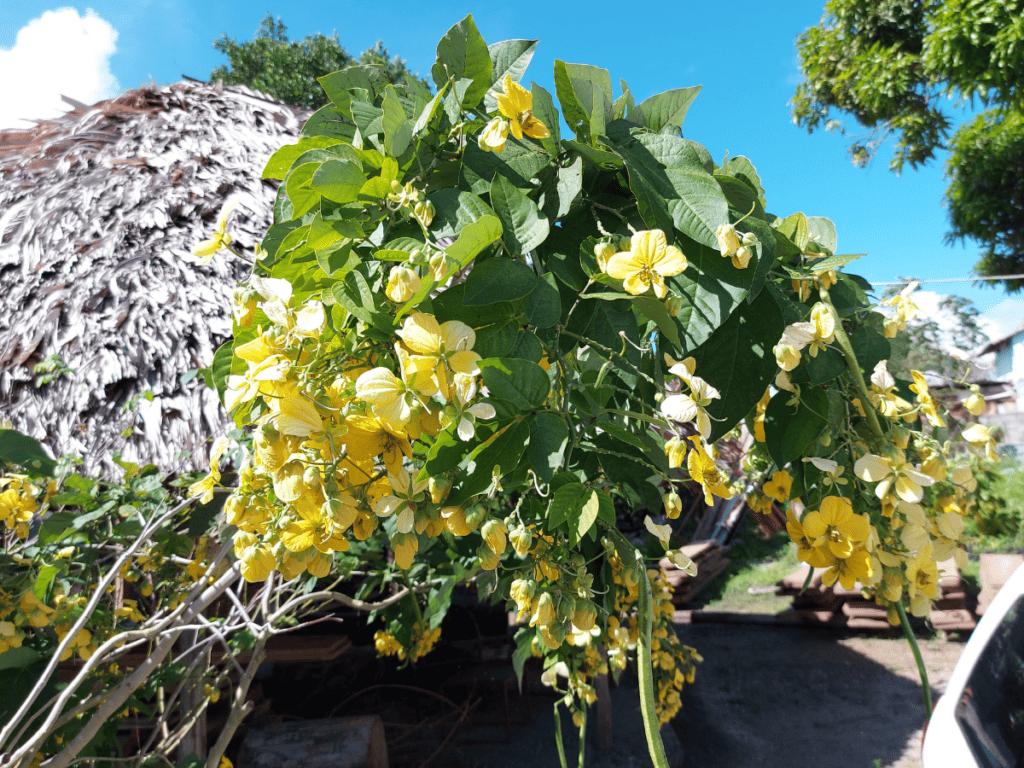The proliferation of quarries in Trinidad and Tobago has contributed to the country’s development in ways that are both positive and negative. On one hand, quarries provide materials for the construction industry and create employment in fence line communities. On the other hand, there are long-term environmental impacts a community incurs when a quarry operator absconds on its responsibility to protect natural resources or rehabilitate depleted quarry sites. When it comes to forests and the critical role bees play for them through pollination, the impact of quarries on nature in Trinidad and Tobago can be described as one of tragic loss.
According to the 2018 summary report of the Trinidad and Tobago Extractive Industries initiative (TTEITI), the quarrying sector in Trinidad and Tobago is plagued by issues of irresponsible management and lack of accountability on the part of quarry operators.
The report states, “There are many challenges facing the sector such as inadequate royalty (revenue) collection, inadequate production verification, illegal quarrying and unlicensed quarry operations. These obstacles not only reduce the amount of money available to the Government to spend on public services, but they also have a negative impact on the environment and on people’s livelihoods.”
Fence line communities such as Acono village and Guanapo, Arima, have experienced some of these ill effects. They suffer every day, to this day, from the adverse effects of irresponsible industrial activity by this poorly regulated sector.
Clouds of dust; blocked and damaged roads; polluted streams; and unpredictable landslides: These are all part of day-to-day life in a fence line community affected by quarrying.

Quarry impact on roadways in Guanapo, Arima 
Scar on hillside from quarry activity
Eventually, tractors and large loading trucks making frequent trips in and out of small communities damage roadways. Anyone working outside of the community starts to struggle with getting to and from work. Children also arrive late for school and the wider population suffers from ill heath, allergies and discolored clothing due to the dust.
In some cases, there are water shortages as water sources are blocked by the debris. The pleas of these communities fall on deaf ears as it seems that it is only the balance sheets of powerful companies that matter to those in power.
Residents view the sore patches in the hillside waiting to dissolve into landslides during the rainy season, and face the reality that fruits for animal and human consumption have become extremely scarce.
This leads to another detrimental impact of irresponsible quarry activity – the loss of biodiversity. The flora of Trinidad and Tobago’s once beautiful hillsides are being erased leading fauna to flee in panic, seeking another habitat. Forest areas in the heights of Guanapo, Arima for example, have suffered severely from the quarry in that area.
As trees and plants are destroyed, pollinators such as birds and insects lose their food supply, jeopardising their ability to reproduce. Flowering trees, ornamental trees and shrubs depend on wind, water and visits from insects and birds for reproduction through pollination as they flit from flower to flower. One such ornamental plant, the “Fleur de Cigaron” (senna rizzinii), is frequented by Bees, providers of the healthy nutrient we know and love as “honey”.

First Peoples Community Fighting For Change
This particular issue has caught the attention of the Santa Rosa First Peoples Community who consider themselves to be custodians of the natural environment in Trinidad and Tobago.
As such, the Santa Rosa First Peoples Community has joined a Reforestation Project managed by the Rural Development Company seeking to correct the ill effects of irresponsible quarrying in Trinidad and Tobago. By replanting trees in deforested areas, they hope to plant the seeds of a brighter future where protecting habitats of both flora and fauna are paramount to prosperity.
Fence line communities affected by irresponsible quarrying have not always been well equipped with the necessary resources to communicate with the wider population about the pain they feel for the environment. This has facilitated inaction on the part of the authorities in addressing their concerns. It is for this reason, that anyone with a voice or a platform, must step up to the task of highlighting the plight of any community affected by quarrying so that Trinidad and Tobago can one day look forward to a brighter, more inclusive future for all of its citizens.





